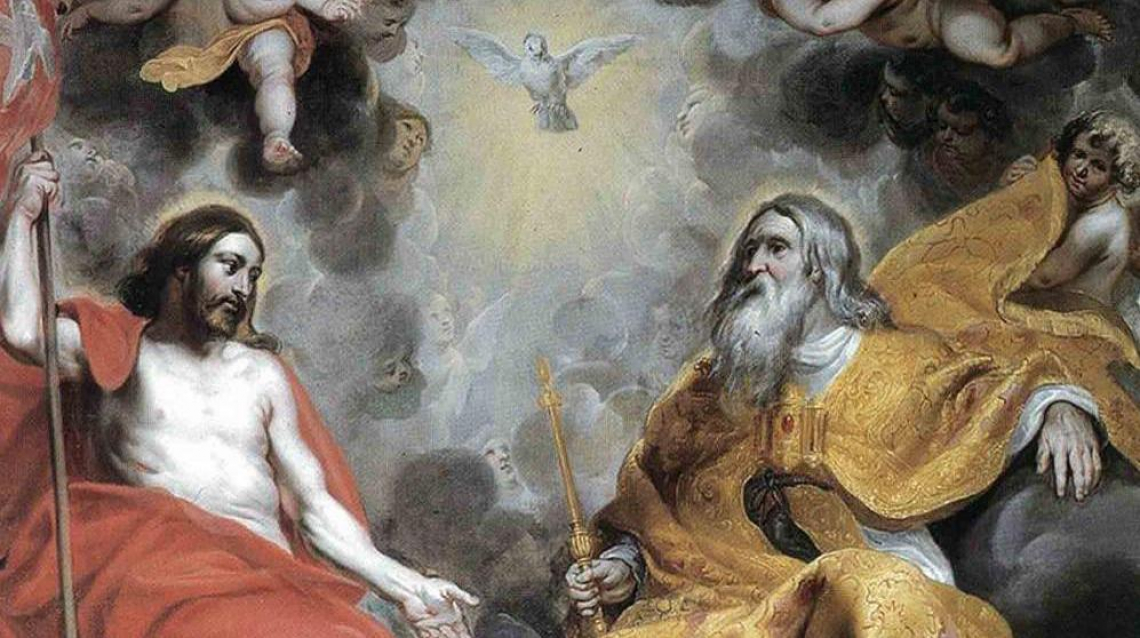The Nicene Creed - Part 4

One God, Three Persons
Go, therefore, and make disciples of all nations, baptizing them in the name of the Father, and of the Son, and of the Holy Spirit. – Matthew 28:19
In the last issue of Harvest, we looked at our faith in God as One and how that faith in God’s essential unity is (or ought to be) reflected in how we, as His Church, are one. The oneness of God was a non-negotiable truth for the faith of Israel.
Our faith as Catholic Christians does not stop there. We affirm, as most Christians have always affirmed, that God is both One and Three. There is One God, but three Persons – Father, Son, and Holy Spirit. This was given the name “Holy Trinity” in the early centuries of the Church. Before we move on to look at what the Creed affirms about each of the Divine Persons, it might be helpful to pause for a moment and ponder the existence of this core doctrine of our faith: One God, Three Persons.
How can we frame this core doctrine? How can we begin to speak of it?
Some might dismiss this doctrine as nonsense, a contradiction, or an invention of the early Church.
An invention? If someone wants to make up a story that others will believe, that story needs to be credible and consistent. The simpler and more direct it is, the better. Why would the early Church go through so much trouble to invent a doctrine that is very difficult to explain or understand? In fact, the heresies of the early Church were all attempts to come up with a simpler, more direct explanation of who God is – one that would be easier for our human minds to grasp. The Church Fathers did not do this, nor did they accept the simpler explanations that were found to be heresies.
Nonsense or contradiction? People will think this if they apply only either/or thinking. There are times when either/or thinking works well. An animal or plant is either living or dead. It cannot be both at once. God, however, transcends human language and categories. It is very difficult to speak of God in human language. One of the ways we must do so is by paradox. In other words, some things, in God, are both/and.
A couple of examples may help illustrate this. We who believe in Christ experience both His dying and His rising in our daily lives. Not one or the other but both. God is both perfect mercy and perfect justice. We have a hard time seeing how God can be both, but God is both. In the same way, God is both One and Three. Not One or Three; One and Three.
We will not find the doctrine of the Trinity stated, concisely or explicitly, in Scripture. Nevertheless, this doctrine is the summation and the conclusion of all that Scripture says about God. It is the summation of all that Jesus did and taught. Jesus began His ministry proclaiming that He was the Son, sent by the Father, and thus able to do what only God could do. Jesus and various New Testament writers speak of the Holy Spirit, who continues the work of the Father and the Son among us. The early Fathers of the Church struggled to find the best possible human language to express all that Jesus had revealed to us about God, One and Three. Using the Scriptures and terms from Greco-Roman thought, they settled on the language of One God in Three Persons as the best way we could express who God is.
Our tradition has given us various ways of speaking of how the Father, the Son, and the Holy Spirit relate to one another in the One God. One way can be summarized as follows. God is Love. It is the nature of love to give. God, being perfect and absolute, gives Himself completely and perfectly. The Giver is the Father; the Gift is the Son. The Father gives all to the Son; the Son, the perfect image of the Father, gives all back in return. This mutual giving is perfect and complete, because it is God doing the giving. This mutual giving and receiving, this bond of love between Father and Son, is, then, also a Person, the Holy Spirit. This is only a beginning and cannot say all that could be said. But it is a valid beginning.
In the next three articles, we will look at what the Creed professes about the Father, the Son and the Holy Spirit, each in turn. Stay tuned!
By: Father Mark Nolette










